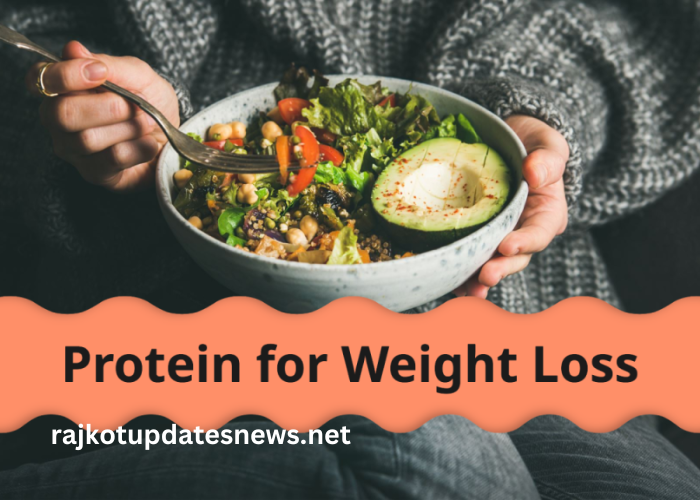Protein plays a crucial role in maintaining overall health and is a vital component of a balanced diet. Not only is it essential for building and repairing tissues, but it also significantly impacts weight management. For those looking to lose weight, incorporating adequate protein into your diet can be a game-changer. Wellhealthorganic.com delves into how protein aids in weight loss, offering insights into its benefits, optimal sources, and effective strategies for incorporating it into your daily routine.
The Role of Protein in Weight Loss
Protein supports weight loss in several key ways. It enhances satiety, promotes muscle preservation, and boosts metabolism. When included in a balanced diet, protein can help reduce appetite, increase calorie burning, and prevent muscle loss during weight reduction efforts. Understanding these mechanisms can help you leverage protein effectively in your weight loss journey.
How Protein Increases Satiety
One of the most significant ways protein aids weight loss is by increasing feelings of fullness. High-protein foods take longer to digest, which helps keep you satisfied for longer periods. This can reduce overall calorie intake by curbing unnecessary snacking and overeating. Protein also influences hunger hormones, such as ghrelin and leptin, which play a role in regulating appetite.
Protein and Muscle Preservation
During weight loss, it’s common to lose muscle mass along with fat. Protein consumption helps mitigate this loss by supporting muscle preservation. Adequate protein intake ensures that your body has the necessary building blocks to maintain muscle tissue, which is crucial for sustaining a healthy metabolism and promoting fat loss.
Boosting Metabolism with Protein
Protein has a higher thermic effect compared to carbohydrates and fats, meaning it requires more energy to digest and metabolize. This increased energy expenditure can boost your overall calorie burn, contributing to weight loss. By incorporating protein-rich foods into your diet, you can enhance your metabolic rate and support your weight loss goals.
Optimal Protein Sources for Weight Loss
Choosing the right sources of protein is essential for effective weight management. Lean proteins such as chicken breast, turkey, fish, and tofu are excellent options. Additionally, incorporating dairy products like Greek yogurt and cottage cheese, as well as plant-based sources like legumes and quinoa, can provide a variety of nutrients and support weight loss.
Incorporating Protein into Every Meal
To maximize the benefits of protein for weight loss, aim to include a source of protein in every meal and snack. This approach helps stabilize blood sugar levels, control hunger, and maintain muscle mass. Plan your meals around protein-rich foods and balance them with vegetables and whole grains for a well-rounded diet.
The Importance of Protein Timing
Timing your protein intake can influence its effectiveness in weight loss. Consuming protein shortly after exercise helps with muscle repair and recovery. Additionally, spreading protein intake evenly throughout the day can help maintain satiety and support metabolic function. Consider incorporating a protein-rich snack before bed to aid overnight muscle repair and prevent late-night cravings.
Balancing Protein with Other Nutrients
While protein is essential for weight loss, it’s important to maintain a balanced diet that includes other nutrients. Combining protein with healthy fats and complex carbohydrates can create satisfying and nutritious meals. Focus on whole foods such as fruits, vegetables, nuts, and seeds to complement your protein intake and support overall health.
Protein Supplements: Are They Necessary?
Protein supplements can be a convenient way to boost your protein intake, especially if you’re struggling to get enough through whole foods. Options like whey protein, casein, and plant-based powders can supplement your diet. However, it’s generally best to prioritize whole food sources of protein and use supplements as an additional aid rather than a primary source.
Avoiding Common Protein Pitfalls
When focusing on protein for weight loss, be mindful of common pitfalls. Excessive protein intake can strain the kidneys and lead to nutrient imbalances. Ensure that your diet is well-rounded and that you’re not relying solely on protein supplements. Additionally, be cautious with protein bars and shakes that may contain added sugars or unhealthy ingredients.
The Role of Protein in a Sustainable Diet
For weight loss to be effective and sustainable, it’s important to adopt a diet that you can maintain long-term. Incorporating protein in a balanced and enjoyable way can support lasting weight management. Focus on integrating diverse protein sources, experimenting with recipes, and making healthy eating a part of your lifestyle.
Protein and Exercise Synergy
Combining protein intake with regular exercise can enhance weight loss results. Resistance training, in particular, benefits from adequate protein consumption to build and repair muscle tissue. Additionally, pairing protein with aerobic activities can help optimize fat burning and improve overall fitness. Develop a fitness plan that includes both strength training and cardio to maximize your weight loss efforts.
Monitoring Your Protein Intake
Keeping track of your protein intake can help you stay on target with your weight loss goals. Use food diaries, apps, or nutritional labels to ensure you’re meeting your protein needs. Regularly assess your progress and make adjustments to your diet as necessary to stay aligned with your weight loss objectives.
Personalized Protein Needs
Individual protein needs vary based on factors such as age, gender, activity level, and weight loss goals. Consult with a healthcare professional or nutritionist to determine your specific protein requirements and develop a personalized plan. They can provide tailored recommendations to help you achieve optimal results while maintaining overall health.
Conclusion
Protein is a powerful ally in the quest for effective weight loss. By enhancing satiety, preserving muscle mass, and boosting metabolism, protein can support your journey toward a healthier and leaner body. Wellhealthorganic.com provides valuable insights and tips to help you harness the benefits of protein, from choosing the right sources to integrating it into your daily routine. Embrace these strategies, stay consistent with your efforts, and enjoy the positive impact of a well-balanced, protein-rich diet on your weight loss goals.



